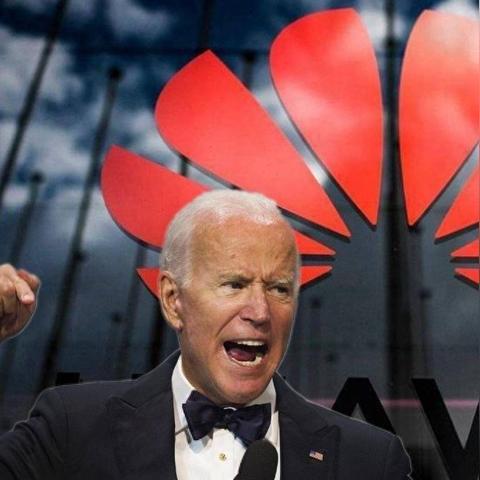Introduction to Carbon Tariff Barriers vs. Developing Country Exemptions
The concept of carbon tariffs has become increasingly significant in global trade discussions, particularly as countries grapple with the challenge of reducing greenhouse gas emissions. There is a heated debate on whether to implement carbon tariffs壁垒, which are essentially trade barriers levied on goods from countries with lax environmental regulations, or to provide exemptions for developing nations. This article aims to provide a comprehensive overview of the issue, detailing the official viewpoints, the rationale behind carbon tariffs, and the arguments for and against exemptions for developing countries.
Definition and Rationale for Carbon Tariffs
Carbon tariffs壁垒are a mechanism proposed by some countries to protect their domestic industries and encourage more sustainable global economic practices. The underlying rationale is that by imposing a tariff on imports from countries that have not adopted equivalent carbon-cutting measures, these countries can protect their domestic industries from unfair competition and incentivize environmental improvement globally. The logic behind it is that the cost of carbon emissions should be internalized in the price of goods, which would lead to more environmental friendly practices.
Exemptions for Developing Countries: Arguments in Favor
Developing nations often argue for exemptions from carbon tariffs壁垒on several grounds. Firstly, the cost of implementing carbon reduction measures might hinder their ongoing development efforts, given their limited resources. Secondly, there's a notion that industrialized nations have historically contributed more to global emissions and thus bear a larger responsibility for addressing climate change.
Counterarguments Against Exemptions: Environmental Justice and Fair Competition
While there is sympathy for the plight of developing countries, opponents of exemptions argue that environmental justice demands a level playing field. They claim that carbon tariffs壁垒are crucial to preventing a "race to the bottom" where nations compete to lower environmental standards to gain a competitive edge. Furthermore, it is contended that exempting developing countries from these tariffs could undermine the global effort to combat climate change, as it would not encourage them to adopt cleaner technologies and practices.
Economic Impact and the Role of Carbon Tariffs
The economic impact of carbon tariffs壁垒is a key point of debate. Proponents argue that these tariffs can be a tool for shifting towards a greener global economy. By making carbon-intensive goods more expensive, it creates a financial incentive for both producers and consumers to adopt more environmentally friendly alternatives. On the other hand, opponents highlight potential job losses in sectors heavily dependent on exports and the risk of trade wars triggered by such tariffs.
The Complexities of Implementation
The complexities of implementing carbon tariffs壁垒cannot be understated. Determining a fair and effective tariff rate is challenging, as it would require accurate measurements of carbon emissions across different processes and industries. Moreover, establishing a universally acceptable emissions standard is a significant hurdle due to the vast differences in economic development levels and the state of technological advancement among nations.
Political and Diplomatic Considerations
Politically, carbon tariffs壁垒and exemptions are a delicate balancing act. Developing nations often view tariffs as a form of protectionism rather than an environmental policy. Diplomatically resolving these differences is key to achieving global climate goals while maintaining international trade relations. International cooperation is vital to ensure that environmental policies do not become tools of economic coercion.
Potential Avenues for Compromise
Some suggest a middle ground where developing nations could be phased into carbon tariffs壁垒gradually, allowing them time to adjust and upgrade their industries. This could be accompanied by financial and technological assistance from developed nations to facilitate a smoother transition to greener practices. Such a compromise could balance the need for environmental protection with the developmental concerns of less wealthy nations.
The Importance of Multilateral Agreements
Multilateral agreements play a crucial role in addressing the carbon tariffs壁垒versus developing country exemptions debate. Organizations such as the UNFCCC are tasked with facilitating international cooperation to mitigate global emissions. Multilateral agreements can lay out frameworks for how carbon tariffs壁垒and exemptions can be applied fairly and effectively, considering the needs of all member countries.
Future Outlook and Challenges
The future of carbon tariffs壁垒and exemptions is uncertain and depends on global political will. As climate change accelerates, the urgency to address its causes increases. It is imperative that all nations, regardless of their development stage, contribute to the solution. The challenge lies in crafting policies that are fair, effective, and equitable in the context of historic emissions, present-day realities, and future developmental aspirations.
Conclusion
In conclusion, the debate surrounding carbon tariffs壁垒and exemptions for developing nations is multifaceted, encompassing economic, environmental, and social considerations. While the final form and impact of these policies remain to be seen, one thing is clear: cooperative international efforts are essential to navigate this complex issue and work collaboratively towards a sustainable future for all.
















 琼ICP备2023003230号-1
琼ICP备2023003230号-1
还没有评论,来说两句吧...